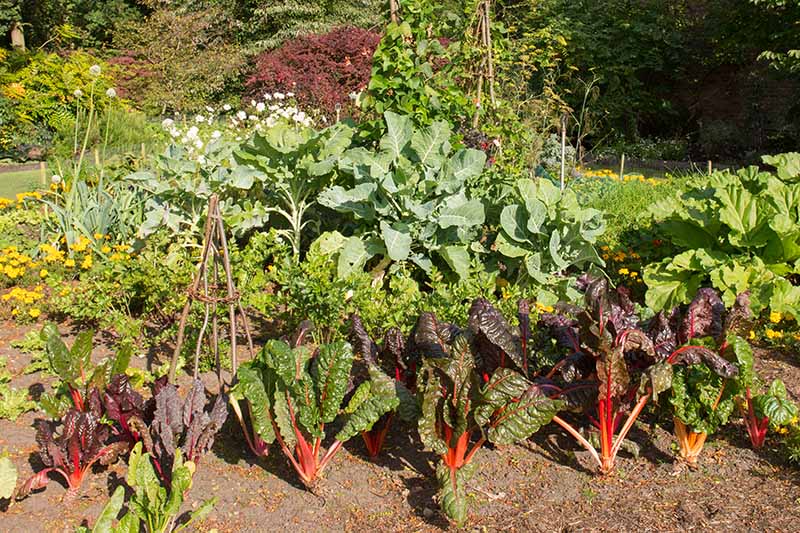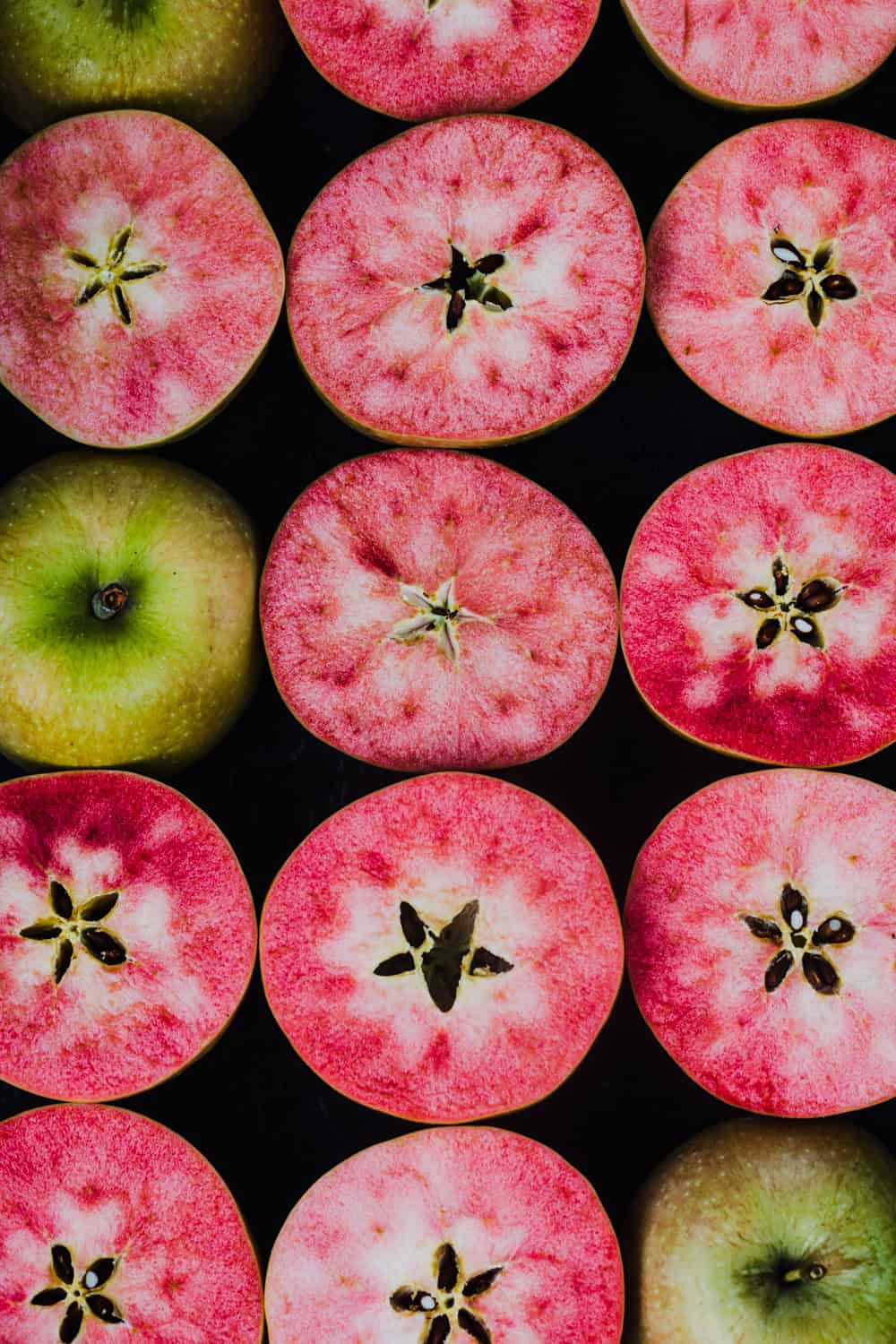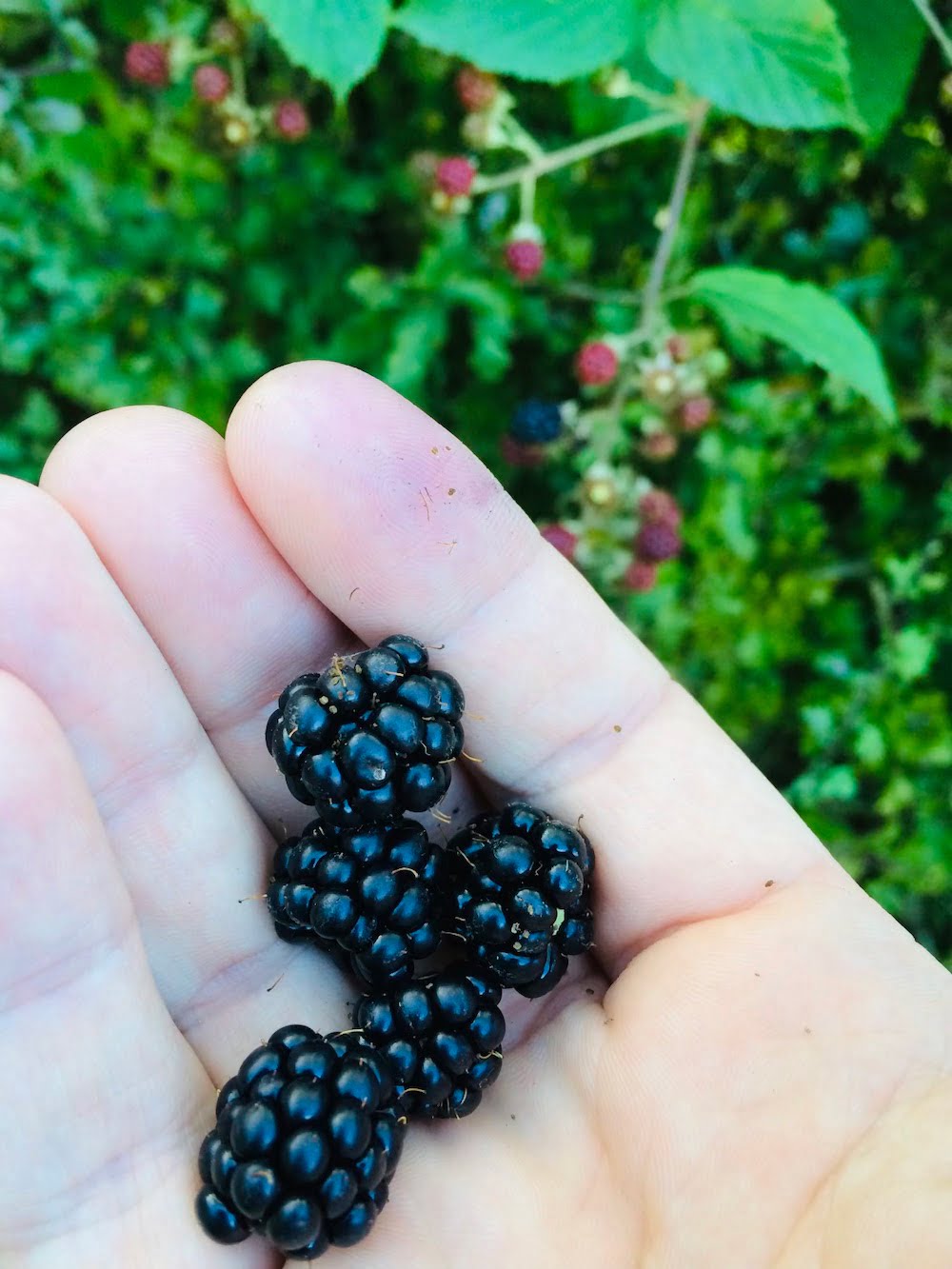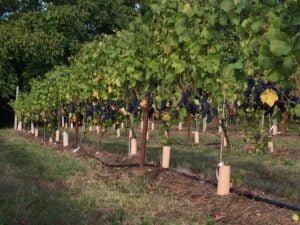So you’ve decided to add Swiss chard to your garden, but you’re not quite sure which plants would thrive alongside it and which ones should be avoided. Well, look no further! In this article, we’ll explore the best and worst companion plants for Swiss chard, helping you create a harmonious and productive garden bed. From tomatoes to radishes, we’ll uncover the secrets to successful plant pairings and avoid those troublesome combinations that can hinder your chard’s growth. So grab your gardening gloves and let’s get started on making your Swiss chard bed the envy of all your neighbors!
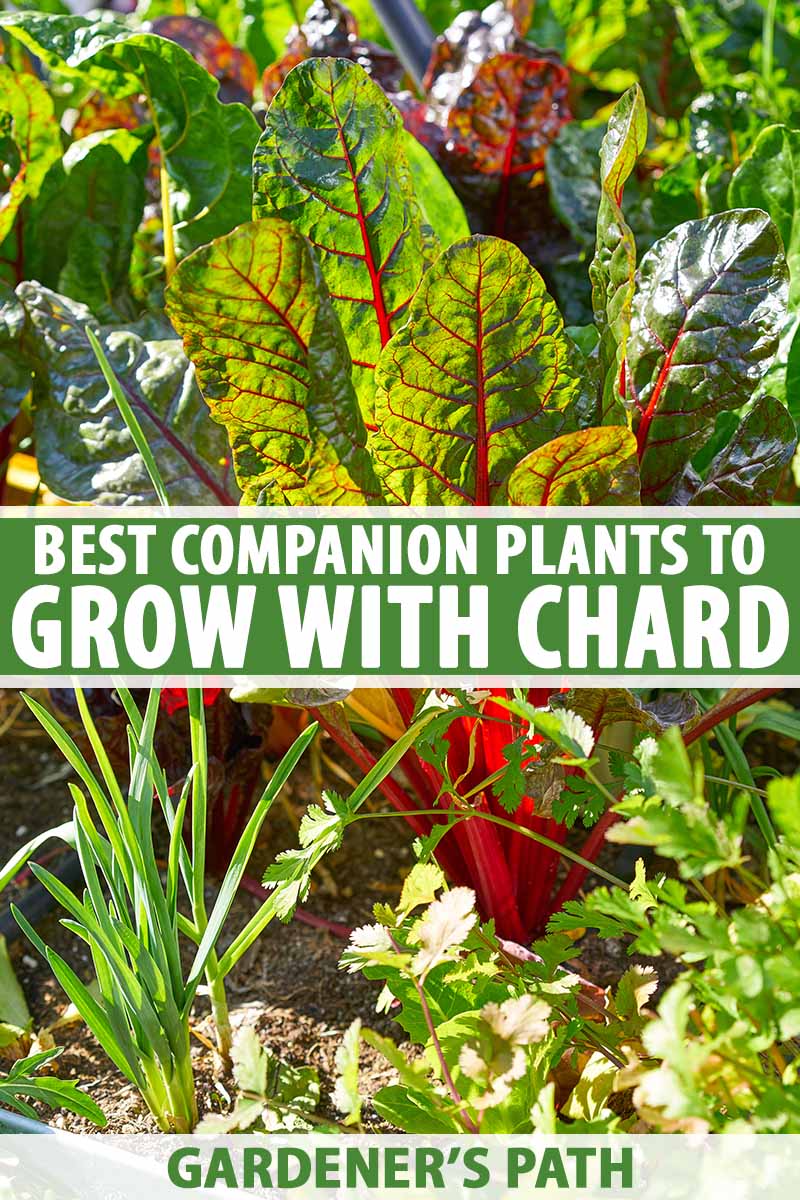
The Best and Worst Companion Plants for Swiss Chard
When it comes to growing Swiss Chard in your garden, choosing the right companion plants can make a significant difference in the health and productivity of your crops. Companion planting involves growing different plants in close proximity to one another to provide mutual benefits. Some plants can enhance the growth and yield of Swiss Chard, while others may inhibit its development or attract pests. In this article, we will explore the best and worst companion plants for Swiss Chard, along with the factors to consider when making your selections.
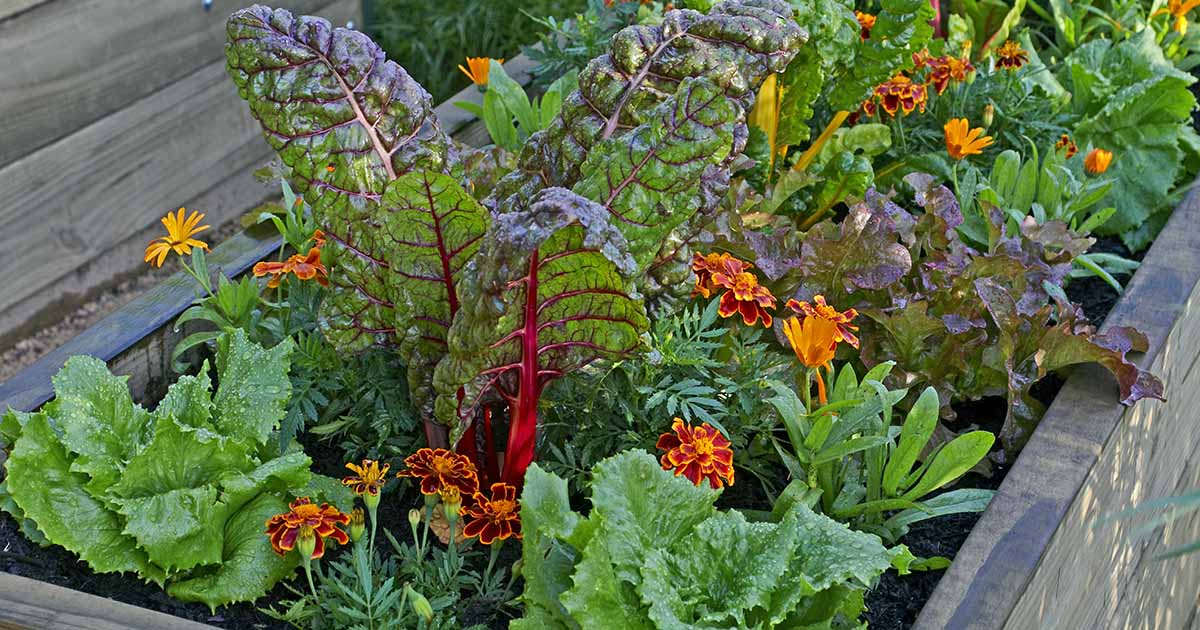
The Best Companion Plants for Swiss Chard
Basil
Basil is a fantastic companion plant for Swiss Chard due to its natural pest control properties and ability to improve the flavor of the chard leaves. The strong aroma of basil acts as a deterrent for pests such as aphids, mosquitoes, and flies, keeping them away from your Swiss Chard. Additionally, planting basil near Swiss Chard can enhance the taste of the chard leaves, adding a delightful twist to your meals.
Lettuce
Lettuce is another excellent companion for Swiss Chard, as these two leafy greens thrive in similar growing conditions. The shade provided by the larger Swiss Chard leaves can protect the tender lettuce leaves from excessive sun exposure. Moreover, interplanting lettuce with Swiss Chard can help maximize garden space, as both plants occupy the same vertical and horizontal space.
Spinach
Spinach and Swiss Chard share similar nutrient needs and growth habits, making them ideal companions in the garden. These leafy greens are both rich in iron and other essential nutrients, so planting them together can create a patch of nutritious goodness. Additionally, their compatible growth habits ensure they won’t compete for resources or overshadow one another.
Onions
Onions are beneficial companion plants for Swiss Chard as they can help deter pests like aphids and carrot flies. Their strong smell repels these unwanted visitors, reducing the risk of infestation on both onions and Swiss Chard. Furthermore, onions have shallow root systems, allowing them to coexist peacefully with the deeper root systems of Swiss Chard.
Garlic
Garlic has robust pest-repelling properties, making it an excellent companion for Swiss Chard. By planting garlic near Swiss Chard, you can naturally ward off pests like aphids, Japanese beetles, and spider mites. Moreover, garlic can also help in deterring larger pests like deer and rabbits, protecting your Swiss Chard from potential damage.
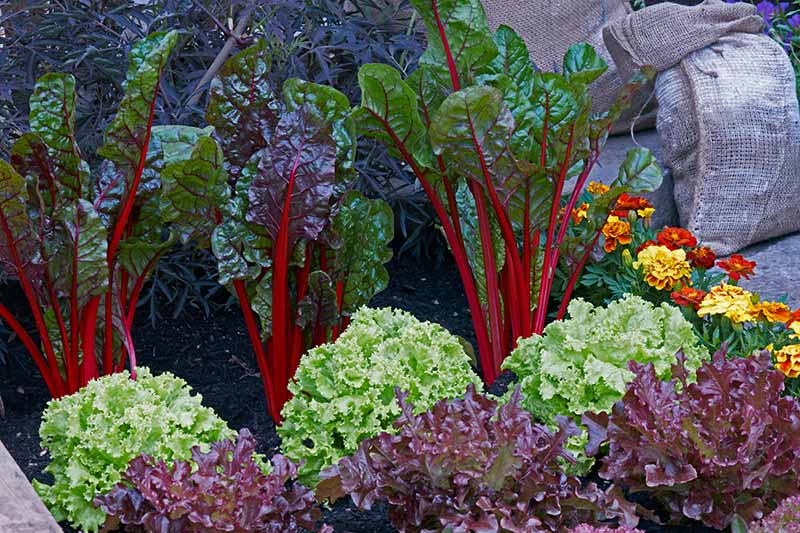
The Worst Companion Plants for Swiss Chard
While certain companion plants can enhance the growth and health of Swiss Chard, others may have adverse effects. It is important to avoid planting these incompatible companions near Swiss Chard to ensure optimal results.
Beans
Beans are not suitable companion plants for Swiss Chard due to their incompatible growth habits. Beans are climbing plants that tend to overshadow and shade out the Swiss Chard, hindering its growth and reducing its yield. Additionally, beans and Swiss Chard have different nutrient requirements, which can lead to competition for vital resources.
Beets
Beets and Swiss Chard belong to the same botanical family, but they should not be grown together. Planting beets near Swiss Chard can increase the risk of diseases and pests that affect both crops. Moreover, the strong scent of Swiss Chard can attract leaf miners, which can harm both beets and Swiss Chard.
Cabbage
Cabbage is not an ideal companion for Swiss Chard, primarily due to their different growth habits and nutrient needs. Cabbage plants tend to grow larger and require more space compared to Swiss Chard. Incompatible growth patterns and competition for resources can hinder the development of both crops.
Kale
Kale is a member of the Brassica family, which includes cabbage, broccoli, and Brussels sprouts. As such, it is best to avoid planting kale near Swiss Chard to prevent the spread of diseases and pests that commonly affect members of the Brassica family. Additionally, the vigorous growth of kale can overshadow the Swiss Chard, limiting its access to sunlight.
Tomatoes
Tomatoes and Swiss Chard should not be planted together due to their different growth requirements and susceptibility to diseases. Tomatoes are heavy feeders that require ample nutrition, while Swiss Chard has more moderate nutrient needs. Furthermore, planting tomatoes near Swiss Chard can increase the risk of diseases like blight, which can affect both crops.
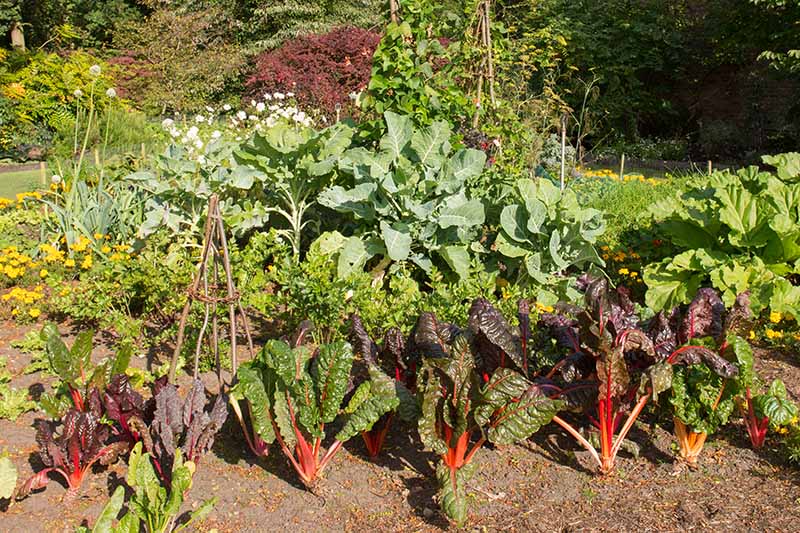
Factors to Consider When Choosing Companion Plants
When selecting companion plants for Swiss Chard, it is essential to consider several factors that can influence their compatibility and overall success in the garden. These factors include growth habit, nutrient needs, pest control properties, and compatible soil conditions.
Growth Habit
Matching the growth habits of companion plants is crucial to ensure that they do not outcompete each other for resources. Plants with similar growth habits, such as those of similar heights or shapes, are more likely to coexist harmoniously. On the other hand, plants with different growth habits may struggle to thrive in close proximity, leading to reduced growth and productivity.
Nutrient Needs
Different plants have varying nutrient requirements, and it is important to choose companion plants with similar nutritional needs to avoid competition for essential resources. Matching plants with similar nutrient requirements can result in healthier and more productive crops.
Pest Control
Companion planting offers the opportunity to naturally control pests by including plants that repel or attract beneficial insects. Some plants, like basil and garlic, have strong scents that deter pests, while others, such as marigolds, attract beneficial insects like ladybugs and lacewings that feed on harmful pests. By wisely selecting companion plants, you can create a balanced ecosystem that helps keep pests in check.
Compatible Soil Conditions
Plants have different preferences for soil pH, moisture levels, and fertility. Choosing companion plants that have similar soil preferences can simplify garden maintenance and ensure that all plants thrive in their shared environment.
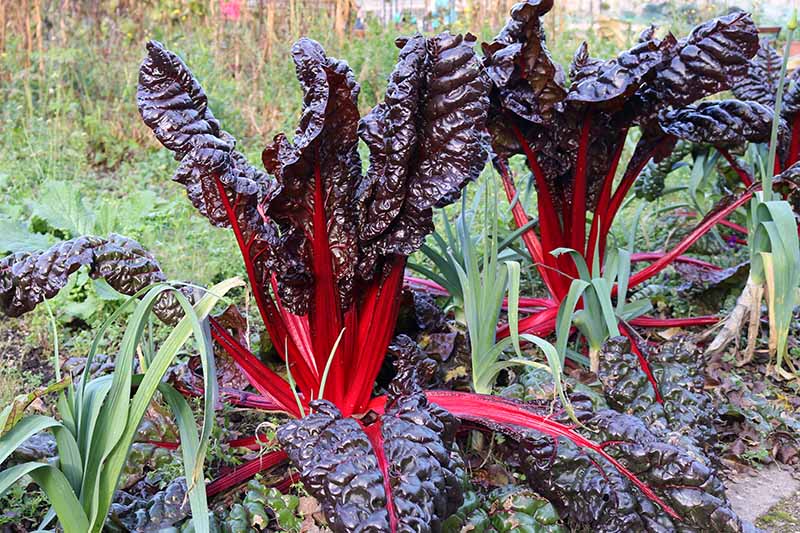
The Benefits of Companion Planting with Swiss Chard
Companion planting with Swiss Chard offers numerous benefits, ranging from enhanced growth and yield to weed suppression and pest control.
Enhanced Growth and Yield
When companion plants are carefully selected, they can enhance the growth and yield of Swiss Chard. Compatible companions can provide shade, which protects Swiss Chard from excessive sun exposure, reducing stress and promoting healthier growth. Additionally, some companion plants may improve soil fertility or attract pollinators, resulting in increased yields.
Weed Suppression
Companion plants can act as living mulch, covering the soil and suppressing weed growth around Swiss Chard. They create a natural barrier that prevents weeds from gaining a foothold, reducing the need for manual weeding and saving you time and effort in maintaining your garden.
Pest Control
Companion plants can play a vital role in pest control by repelling harmful pests or attracting beneficial insects that prey on pests. By strategically choosing companion plants with pest-repelling properties, you can reduce the risk of pest infestations and the need for chemical pesticides, creating a healthier and more environmentally friendly garden.
In conclusion, selecting the right companion plants for Swiss Chard is crucial for its health, growth, and overall success in your garden. Basil, lettuce, spinach, onions, and garlic are among the best companions for Swiss Chard, offering various benefits such as pest control and enhanced flavor. On the other hand, beans, beets, cabbage, kale, and tomatoes are ill-suited companions that can inhibit the growth of Swiss Chard or increase the risk of diseases and pests. By considering factors such as growth habit, nutrient needs, pest control, and compatible soil conditions, you can create a thriving garden ecosystem that maximizes the potential of your Swiss Chard crop.
